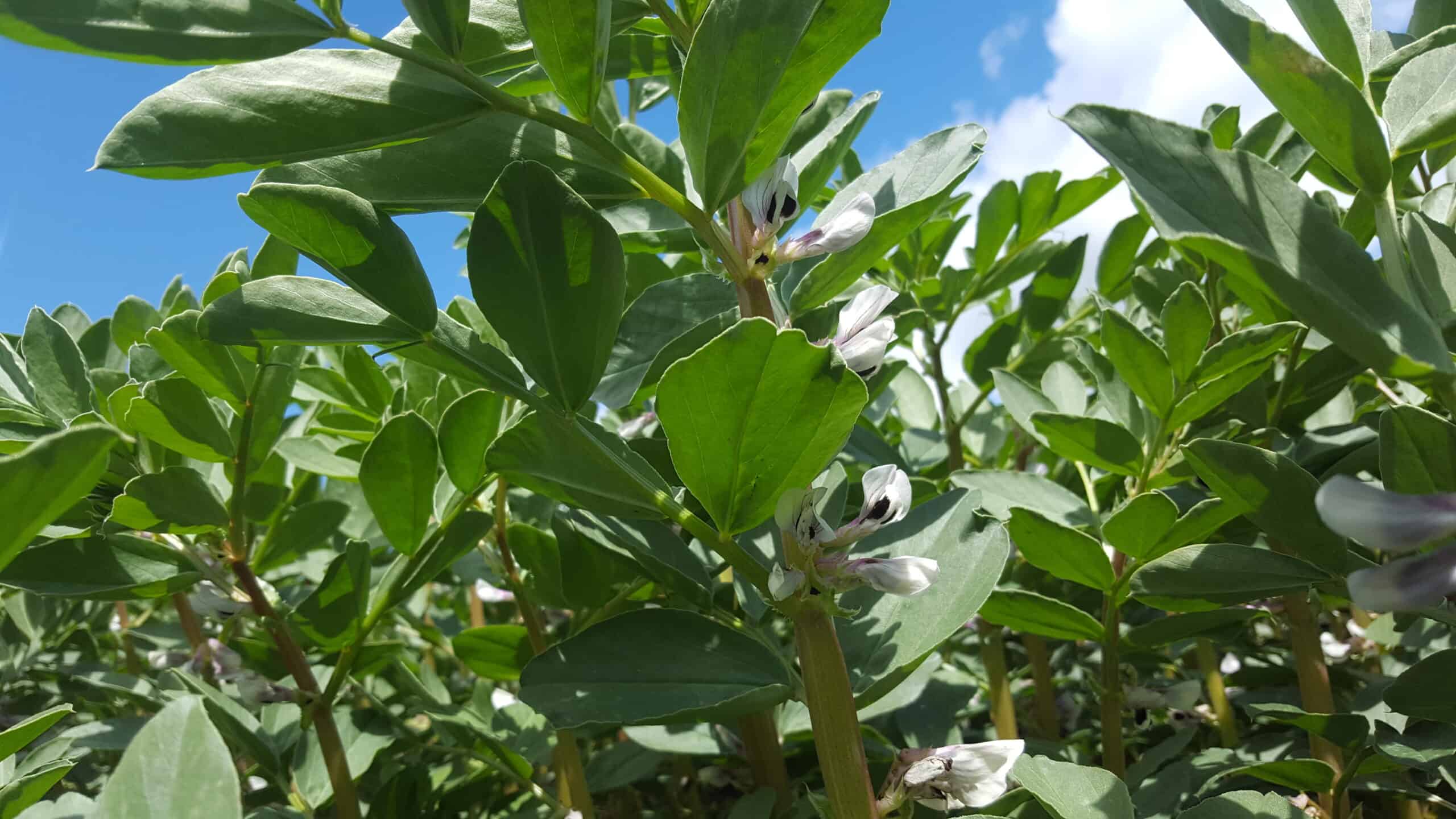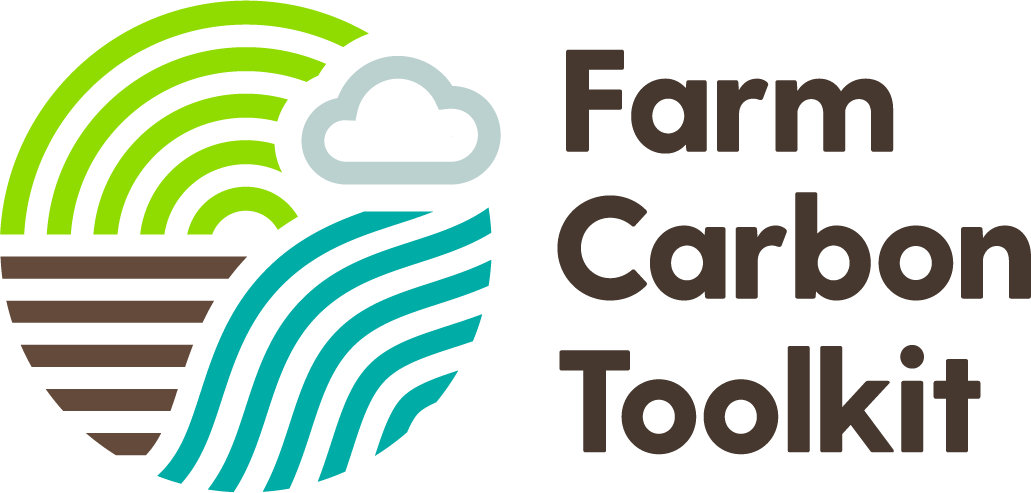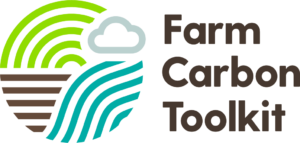
Farm Carbon Toolkit is a project partner and actively involved in delivering the Nitrogen Climate Smart (NCS) project, providing a range of information services, including assessing the carbon footprint of goods and activities.
The feed trials are a key part of the project. This blog shares results from the first of several trials, which are being delivered across beef, dairy, and poultry enterprises. This first trial aimed to better understand the potential options of feeding home-grown proteins such as faba beans, as an alternative to soya bean meal.
Soya is commonly used in blended feeds, but it is often imported from areas of tropical rainforest that have been cleared for agriculture, carrying substantial carbon implications. Therefore, if we can demonstrate successful animal performance using home-grown proteins from legumes this can help develop local markets for products that can deliver substantial carbon savings for the UK. This trial examines the option of feeding rolled faba beans and roasted faba beans and the animal performance of two groups of similar groups.
The feed trial in question sought to look at the performance of beef cattle in the run-up to finishing. A herd of limousin cross cattle were split into two equal-sized groups and were housed in two halves of the same shed and fed the following diets:
| Diet composition | |
| Green Group | Red Group |
| 1st Cut grass silage (adlib) | 1st Cut grass silage (adlib) |
| Rolled Barley 5 kg/hd/day | Rolled Barley 5 kg/hd/day |
| Rolled Beans 1.0 kg/hd/day | Roasted Beans 1.0 kg/hd/day |
| Beef minerals 0.1 kg/hd/day | Beef minerals 0.1 kg/hd/day |
| Performance | |
| Green Group | Red Group |
| Av Daily liveweight gain 1.39 kg | Av Daily liveweight gain 1.54 kg |
| Av % DLWG 16% | Av % DLWG 16% |
| Feed Conversion Ratio 9.41 | Feed Conversion Ratio 8.52 |
| Economics | |
| Green Group | Red Group |
| Feed cost per day £1.36 | Feed cost per day £1.43 |
| Cost per kg/LWG £0.98 | Cost per kg/LWG £0.93 |
| Carbon | |
| Green Group | Red Group |
| 6.62 kg CO2e/kg LWG | 6.11 kg CO2e/kg LWG |
Summary of outcomes from the feeding trial:
The inclusion of roasted beans:
- Increased feed cost by 5%
- Increased feed emissions by 6%
- Increased daily live weight gain by 10%
- Reduced feed conversion ratio by 9% (a good thing!)
- Decreased cost per kg liveweight gain by 5%
- Decreased feed emissions per kg liveweight gain by 4%
- Decreased total emissions per kg liveweight gain by 8%
These early results are encouraging. They suggest that home-grown alternatives like roasted faba beans can deliver strong animal performance while reducing emissions and dependency on imported soya.
What next?
This is just the beginning. As part of the Nitrogen Climate Smart project, further trials are underway to build a broader evidence base, with FCT involved in completing more carbon analysis. We’ll continue to share results and insights as they emerge – helping UK farmers explore practical, climate-smart feeding strategies that work for their business and the environment.

